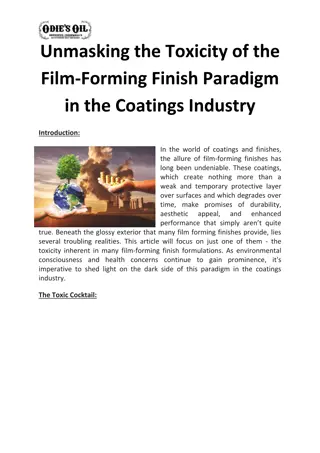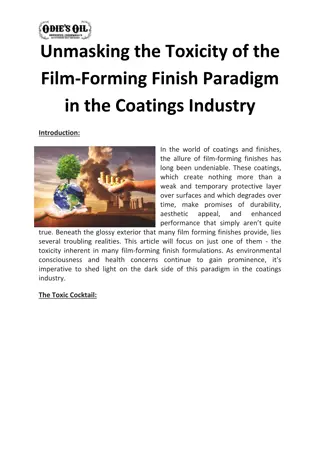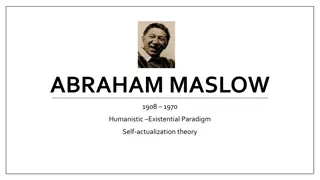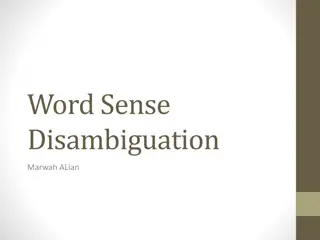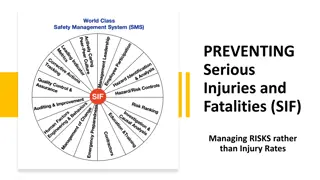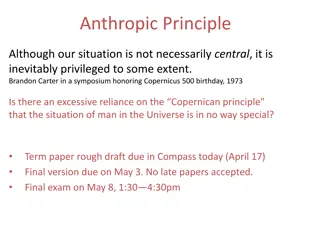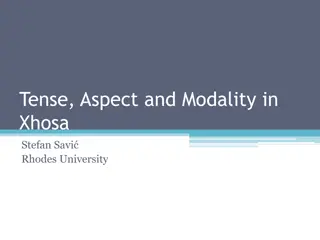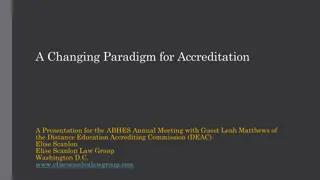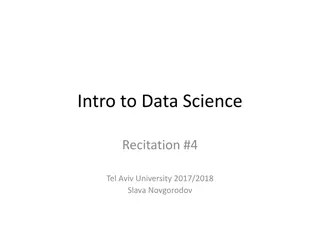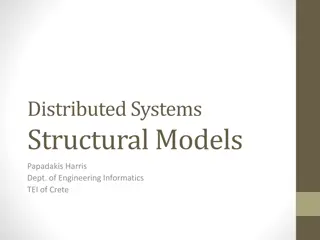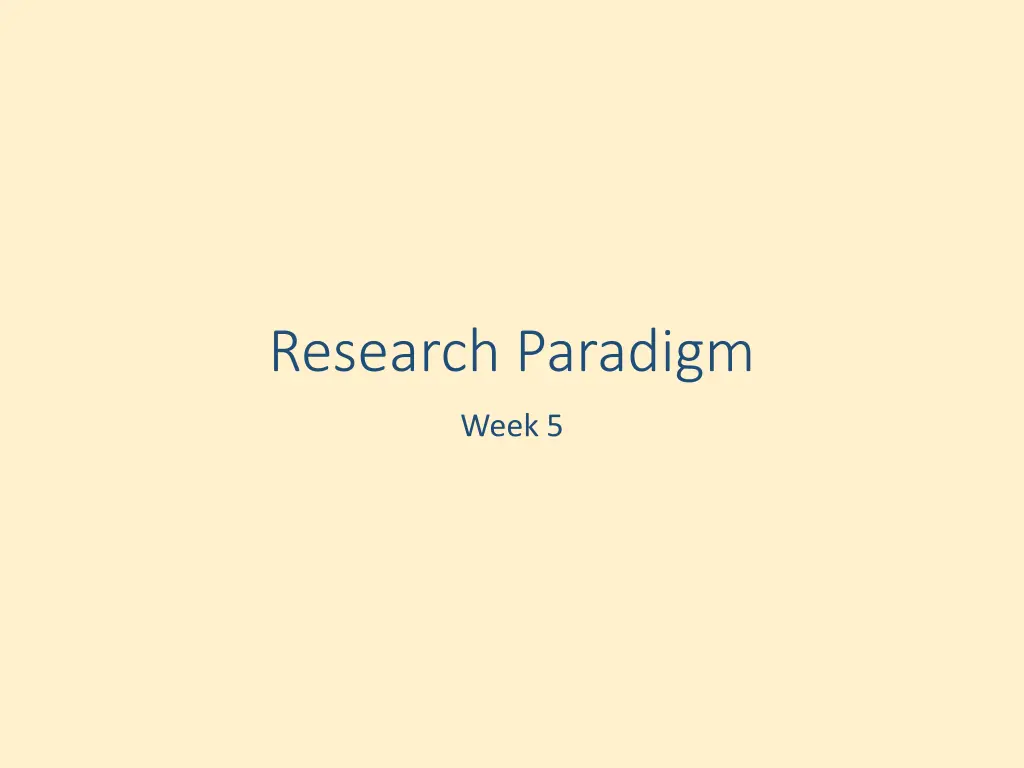
Understanding Research Design for Effective Studies
Delve into the intricacies of research design, from formulating research questions to data collection and analysis. Learn why reliability, validity, and generalizability are crucial for successful research outcomes.
Download Presentation

Please find below an Image/Link to download the presentation.
The content on the website is provided AS IS for your information and personal use only. It may not be sold, licensed, or shared on other websites without obtaining consent from the author. If you encounter any issues during the download, it is possible that the publisher has removed the file from their server.
You are allowed to download the files provided on this website for personal or commercial use, subject to the condition that they are used lawfully. All files are the property of their respective owners.
The content on the website is provided AS IS for your information and personal use only. It may not be sold, licensed, or shared on other websites without obtaining consent from the author.
E N D
Presentation Transcript
Research Paradigm Week 5
What have we done so far? What is Research? Clarifying your research Literature Review what s the next step in the research process?
The Research Process adapted from: Saunders et al (2007, pg. 10) , Cooper and Schindler (2006, pg. 55) Formulate and Clarify the Research Topic/Question Research Proposal Critically Review the Literature Address Ethical Issues Formulate your Research Design Data Collection and Preparation Data Analysis and Interpretation Conclusion and Recommendation Research Report
What is the purpose of the Research Design? To operationalise the research objectives It is the HOW of the research Given that you have set out to find an answer to the RQ, the question now is: HOW are you going to do it? So, its all about HOW
Importance of getting the right Research Design Reliability- The extent to which results are consistent over time and an accurate representation of the total population under study and if the results of a study can be reproduced under a similar methodology, then the research instrument is considered to be reliable.
Validity determines whether the research truly measures that which it was intended to measure or how truthful the research results are. In other words, does the research instrument allow you to hit "the bull s eye" of your research object? Generalizability will the findings apply to other people, organizations, industry and/or other situations that the study s sample supposedly represents.
What is Research Design? Research design is the plan and the procedure for research that span decisions from: Broad assumptions to detailed methods of data collection and analysis These decisions must be deliberated by the researcher and based on: the nature of the research problem or issue and The researchers personal experiences
Essentially, the research design answers three key questions: 1. What- are the underlying assumptions, 2. How- you are going to conduct the research, specifically the data collection and analysis and 3. Why- this chosen plan would be best suited for the study. A justification of your choices.
Research Methodology- The Honeycomb Model- Wilson (2013)
Types of Research Method Quantitative (numbers) What can be measured Objective collection and data analysis analysis objective data Statistical data analysis Qualitative (descriptions) Subjective Typically opinions and perceptions Positivist or phenonmenalist approaches
Types of Research Method Quantitative deductive identifies concepts and investigates relationships tests relationships between concepts accepts (or rejects) proposed theory truth seen as objective and universal Qualitative inductive identifies concepts Type of reasoning Concepts Action describes a situation Outcome illuminates the situation Approach to validity truth seen as socially- constructed
Types of Research Method Quantitative deductive identifies concepts and investigates relationships tests relationships between concepts accepts (or rejects) proposed theory truth seen as objective and universal Qualitative inductive identifies concepts Type of reasoning Concepts Deductive reasoning : works from more general to the more specific ("top-down ) analyse / reflect on observation to identify a specific hypotheses narrow the theory further to collect observations This ultimately leads us to be able to test the hypotheses with specific data -- a confirmation (or not) of our original theories (Trochim, 2006) Action describes a situation Outcome illuminates the situation Approach to validity truth seen as socially- constructed
Types of Research Method Quantitative deductive identifies concepts and investigates relationships tests relationships between concepts accepts (or rejects) proposed theory truth seen as objective and universal Qualitative inductive identifies concepts Type of reasoning Concepts Deductive reasoning : observation: students learning via a VLE appear more engaged with learning materials a specific hypotheses: what could you observe: Action describes a situation Outcome illuminates the situation Approach to validity truth seen as socially- constructed
Types of Research Method Quantitative deductive identifies concepts and investigates relationships tests relationships between concepts accepts (or rejects) proposed theory truth seen as objective and universal Qualitative inductive identifies concepts Type of reasoning Concepts Inductive reasoning : moves from specific observations to broader generalisations ( bottom up ) begin with specific observations and measures detect patterns and regularities form a tentative hypotheses explore hypothesis develop some general conclusions or theories.(Trochim, 2006) Action describes a situation Outcome illuminates the situation Approach to validity truth seen as socially- constructed
Types of Research Method Quantitative deductive identifies concepts and investigates relationships tests relationships between concepts accepts (or rejects) proposed theory truth seen as objective and universal Qualitative inductive identifies concepts Type of reasoning Concepts Inductive reasoning : observe that: students in Computer Labs tend to get distracted by Facebook what could you observe? what patterns might these yield? form a tentative hypotheses what general conclusion might you form? Action describes a situation Outcome illuminates the situation Approach to validity truth seen as socially- constructed
Types of Research Method Quantitative deductive identifies concepts and investigates relationships tests relationships between concepts accepts (or rejects) proposed theory truth seen as objective and universal Qualitative inductive identifies concepts Type of reasoning Concepts Action describes a situation Outcome illuminates the situation Approach to validity truth seen as socially- constructed
Types of Research Activity Description (fact finding) What is the number of, amount, effect of ... Exploration (looking for patterns) How is this like that, similarities / differences Analysis (explaining why or how) Why does this happen? Prediction (forecasting the likelihood of particular events) What will to that if I do this, Problem Solving (improvement of current practice) Action research gain knowledge by observation and effect outcome by intervention (i.e. get on and do it)
Deductive and Inductive Approaches Deductive Data Theory Collection/Findings Inductive Data Theory Collection/Findings
Another Perspective by Creswell (2009) Quantitative Research Qualitative Research
Quantitative Research Is a means for testing objective theories by examining relationship among variables These variables can be measured, so that numbered data can be analyzed using statistical procedures Those who engage in this form of research have assumptions about testing theories deductively Researchers build in protections against bias
Qualitative Research Is a means for exploring and understanding the meaning individual assign to a social problem It involves emerging questions and procedures Data typically collected in the participant s setting Data analysis inductively builds from particulars to general themes, where the researcher interprets the meaning of the data
Quantitative Useful when looking for facts or causes Controlled measurements Objective (predictive) Outside perspective Deductive and verification oriented Outcome oriented does your variable really control something Particular and closed Assume a stable reality otherwise results are worthless Qualitative Useful when trying to understand behaviours Uncontrolled observation that is just observation without you controlling Subjective Insider perspective on the data Discovery-orientated, explanatory and descriptive Process orientated that is you drive the research Holistic and open Assume a very dynamic reality
Fundamental difference Quantitative Qualitative Principal Orientation to the role of theory to the research Epistemological Orientation Deductive- testing of theory Inductive- generation of theory Natural Science, Positivism Objectivism Interpretivism, Phenomenological Ontological Orientation Constructivism
Typical Research Methods Descriptive Research (fact finding) - Statistical surveys - Sampling - Interviews Analytical Research (explaining why or how) - Case studies - Observations - Historical analysis Predictive Research (forecasting the likelihood of particular events) - identifying and / or defining measurable variables, and manipulating them (changing them) to cause something measurable Action Research (improvement of current practice) - observe -> reflect -> plan -> act
Stages in Research Design Define a problem Conclude & Report Process Plan & Analyse the Data Research Design Gather the Data Plan a Sample
How you proceed depends on what you believe positivists believe that knowledge is based on the observation of phenomena in an objective and real world such facts have no social value can be observed regularly can seek out casual relationships about proposing and validating theories
Positivism Deals with positive facts and observable phenomena Subscribes to the scientific method Primary goal is not only description but prediction and explanation Classification of substances and events, and observation of these, consistencies in patterns and properties Characterized by absolute or varying degree of generalization Quantitative (it draws on measurable evidence)
Positivist research methods Descriptive research Anything that is variable, varies to a defined degree, and thus can be measured Surveys, case studies, causal comparative studies, correlation studies, developmental studies, trend studies Experimental research Deliberate manipulation of certain factors under highly controlled conditions Purpose is to identify causal connections through keeping the levels of some variables constant and manipulating others
Interpretivism phenominalists believe that each phenomena is unique and is controlled by variables such as time, location and culture ( socially-constructed ) No two situations are identical ( constructions of the human mind Cornford & Smithson, 2006) Essentially subjective, where the content of research and the way it is pursued is indicative of researchers intention Outcomes are descriptions which are expressed in narrative and mainly in qualitative terms
Example Can the study of breach of security incidents provide the basis for improvements in security? Positivist approach: collect data via interview, classify types of incidents, produce analyses, make recommendations based on analysis Interpretivist approach: analyse interviews in depth, seek to draw conclusions about causal factors


![[PDF⚡READ❤ONLINE] Black Hole Astrophysics: The Engine Paradigm (Springer Praxis](/thumb/21503/pdf-read-online-black-hole-astrophysics-the-engine-paradigm-springer-praxis.jpg)

